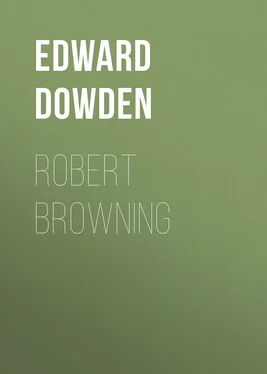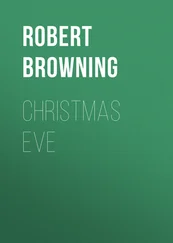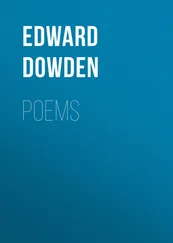Edward Dowden - Robert Browning
Здесь есть возможность читать онлайн «Edward Dowden - Robert Browning» — ознакомительный отрывок электронной книги совершенно бесплатно, а после прочтения отрывка купить полную версию. В некоторых случаях можно слушать аудио, скачать через торрент в формате fb2 и присутствует краткое содержание. Жанр: Биографии и Мемуары, Поэзия, foreign_antique, foreign_prose, foreign_poetry, на английском языке. Описание произведения, (предисловие) а так же отзывы посетителей доступны на портале библиотеки ЛибКат.
- Название:Robert Browning
- Автор:
- Жанр:
- Год:неизвестен
- ISBN:нет данных
- Рейтинг книги:5 / 5. Голосов: 1
-
Избранное:Добавить в избранное
- Отзывы:
-
Ваша оценка:
- 100
- 1
- 2
- 3
- 4
- 5
Robert Browning: краткое содержание, описание и аннотация
Предлагаем к чтению аннотацию, описание, краткое содержание или предисловие (зависит от того, что написал сам автор книги «Robert Browning»). Если вы не нашли необходимую информацию о книге — напишите в комментариях, мы постараемся отыскать её.
Robert Browning — читать онлайн ознакомительный отрывок
Ниже представлен текст книги, разбитый по страницам. Система сохранения места последней прочитанной страницы, позволяет с удобством читать онлайн бесплатно книгу «Robert Browning», без необходимости каждый раз заново искать на чём Вы остановились. Поставьте закладку, и сможете в любой момент перейти на страницу, на которой закончили чтение.
Интервал:
Закладка:
An introduction to Macready which took place at Mr Fox's house towards the close of November 1835 was fruitful in consequences. A month later Browning was Macready's guest at Elstree, the actor's resting-place in the country. His fellow-traveller, then unknown to him, in the coach from London was John Forster; in Macready's drawing-room the poet and his critic first formed a personal acquaintance. Browning had for long been much interested in the stage, but only as a spectator. His imagination now turned towards dramatic authorship with a view to theatrical performance. A play on a subject from later Roman history, Narses , was thought of and was cast aside. The success of Talfourd's Ion , after the first performance of which (May 26, 1836) Browning supped in the author's rooms with Macready, Wordsworth, and Landor, probably raised high hopes of a like or a greater success for some future drama of his own. "Write a play, Browning," said Macready, as they left the house, "and keep me from going to America." "Shall it be historical or English?" Browning questioned, as the incident is related by Mrs Orr, "What do you say to a drama on Strafford?" The life of Stafford by his friend Forster, just published, which during an illness of the author had been revised in manuscript by Browning, probably determined the choice of a subject.
By August the poet had pledged himself to achieve this first dramatic adventure. The play was produced at Covent Garden on May 1st, 1837, by Macready, who himself took the part of Strafford. Helen Faucit, then a novice on the stage, gave an adequate rendering of the difficult part of Lady Carlisle. For the rest, the complexion of the piece, as Browning describes it, after one of the latest rehearsals, was "perfect gallows." Great historical personages were presented by actors who strutted or slouched, who whimpered or drawled. The financial distress at Covent Garden forbade any splendour or even dignity of scenery or of costumes. 19 19 Lady Martin (Helen Faucit), however, wrote in 1891 to Mrs Ritchie: "The play was mounted in all matters with great care … minute attention to accuracy of costume prevailed.... The scenery was alike accurate."
The text was considerably altered—and not always judiciously—from that of the printed play, which had appeared before its production on the stage. Yet on the first night Strafford was not damned, and on the second it was warmly applauded. 20 20 On which occasion Browning—muffled up in a cloak—was asked by a stranger in the pit whether he was not the author of "Romeo and Juliet" and "Othello." "No, so far as I am aware," replied Browning. Two burlesques of Shakespeare by a Mr Brown or Brownley were in course of performance in London. Letters of R.B. and E.B.B. , ii. 132.
After the fifth performance the wretched Pym refused to save his mother England even once more, and the play was withdrawn. Browning declared to his friends that never again, as long as he might live, would he write a play. Whining not being to his taste, he averted his eyes and set himself resolutely to work upon Sordello .
"I sail this morning for Venice," Browning wrote to a friend on Good Friday, 1838. He voyaged as sole passenger on a merchantman, and soon was on friendliest terms with the rough kindly captain. For the first fortnight the sea was stormy and Browning suffered much; as they passed through the Straits of Gibraltar, Captain Davidson aided him to reach the deck, and a pulsing of home-pride—not home-sickness—gave their origin to the patriotic lines beginning, "Nobly, nobly Cape Saint Vincent to the north-west died away." Under the bulwark of the Norham Castle , off the African coast, when the fancy of a gallop on his Uncle Reuben's horse suddenly presented itself in pleasant contrast with the tedium of the hours on shipboard, he wrote in pencil, on the flyleaf of Bartoli's Simboli, that most spirited of poems which tell of the glory of motion— How they brought the good news from Ghent to Aix . The only adventure of the voyage was the discovery of an Algerine pirate ship floating keel uppermost; it righted suddenly under the stress of ropes from the Norham Castle , and the ghastly and intolerable dead—Algerines and Spaniards—could not scare the British sailors eager for loot; at last the battered hulk was cast loose, and its blackness was seen reeling slowly off "into the most gorgeous and lavish sunset in the world." Having visited Venice, Vicenza and Padua—cities and mountain solitudes, which gave their warmth and colour to his unfinished poem—Browning returned home by way of Tyrol, the Rhine, Liege and Antwerp. It was his first visit to Italy and was a time of enchantment. Fifty years later he recalled the memories of these early days when his delight had something insubstantial, magical in it, and the vision was half perceived with the eye and half projected from within:—
How many a year my Asolo,
Since—one step just from sea to land—
I found you, loved yet feared you so—
For natural objects seemed to stand
Palpably fire-clothed! 21 21 Mrs Orr, "Handbook to the Works of Robert Browning," p. 54 (1st ed.).
Of evenings soon after his return to London Mrs Bridell-Fox writes: "He was full of enthusiasm for Venice, that Queen of Cities. He used to illustrate his glowing descriptions of its beauties, the palaces, the sunsets, the moonrises, by a most original kind of etching. Taking up a bit of stray notepaper, he would hold it over a lighted candle, moving the paper about gently till it was cloudily smoked over, and then utilising the darker smears for clouds, shadows, water, or what not, would etch with a dry pen the forms of lights on cloud and palace, on bridge or gondola on the vague and dreamy surface he had produced." The anticipations of genius had already produced a finer etching than any of these, in those lines of marvellous swiftness and intensity in Paracelsus , which describe Constantinople at the hour of sunset.
The publication of Sordello (1840) did not improve Browning's position with the public. The poem was a challenge to the understanding of an aspirant reader, and the challenge met with no response. An excuse for not reading a poem of five or six thousand lines is grateful to so infirm and shortlived a being as man. And, indeed, a prophet, if prudent, may do well to postpone the privilege of being unintelligible until he has secured a considerable number of disciples of both sexes. The reception of Sordello might have disheartened a poet of less vigorous will than Browning; he merely marched breast forward, and let Sordello lie inert, until a new generation of readers had arisen. The dramas, King Victor and King Charles and The Return of the Druses (at first named "Mansoor the Hierophant") now occupied his thoughts. Short lyrical pieces were growing under his hand, and began to form a considerable group. And one fortunate day as he strolled alone in the Dulwich wood—his chosen resort of meditation—"the image flashed upon him of one walking thus alone through life; one apparently too obscure to leave a trace of his or her passage, yet exercising a lasting though unconscious influence at every step of it." 22 22 Mrs Orr, "Handbook to the Works of Robert Browning," p. 54 (1st ed.).
In other words Pippa had suddenly passed her poet in the wood.
A cheap mode of issuing his works now in manuscript was suggested to Browning by the publisher Moxon. They might appear in successive pamphlets, each of a single sheet printed in double-column, and the series might be discontinued at any time if the public ceased to care for it. The general title Bells and Pomegranates was chosen; "beneath upon the hem of the robe thou shalt make pomegranates of blue, and of purple, and of scarlet, round about the hem thereof; and bells of gold between them round about." Browning, as he explained to his readers in the last number, meant to indicate by the title, "Something like an alternation, or mixture, of music with discoursing, sound with sense, poetry with thought"—such having been, in fact, one of the most familiar of the Rabbinical interpretations designed to expound the symbolism of this priestly decoration prescribed in "Exodus." From 1841 to 1846 the numbers of Bells and Pomegranates successively appeared; with the eighth the series closed. The first number— Pippa Passes —was sold for sixpence; when King Victor and King Charles was published in the following year (1842), the price was raised to one shilling. The third and the seventh numbers were made up of short pieces— Dramatic Lyrics (1842), Dramatic Romances and Lyrics (1845). The Return of the Druses and A Blot in the 'Scutcheon —Numbers 4 and 5—followed each other in the same year 1843. Colombe's Birthday —the only number which is known to survive in manuscript—came next in order (1844). The last to appear was that which included Luna , Browning's favourite among his dramas, and A Soul's Tragedy . 23 23 A Soul's Tragedy was written in 1843 or 1844, and revised immediately before publication. See Letters of R.B. and E.B.B., i. 474.
His sister, except in the instance of Colombe , was Browning's amanuensis. On each title-page he is named Robert Browning "Author of Paracelsus"—the "wholly unintelligible" Sordello being passed over. Talfourd, "Barry Cornwall," and John Kenyon (the cousin of Elizabeth Barrett) were honoured with dedications. In these pamphlets of Moxon, Browning's wonderful apples of gold were certainly not presented to the public in pictures or baskets of silver; yet the possessor of the eight parts in their yellow paper wrappers may now be congratulated. Only one of the numbers— A Blot in the 'Scutcheon —attained the distinction of a second edition, and this probably because the drama as published was helped to a comparative popularity by its representation on the stage.
Интервал:
Закладка:
Похожие книги на «Robert Browning»
Представляем Вашему вниманию похожие книги на «Robert Browning» списком для выбора. Мы отобрали схожую по названию и смыслу литературу в надежде предоставить читателям больше вариантов отыскать новые, интересные, ещё непрочитанные произведения.
Обсуждение, отзывы о книге «Robert Browning» и просто собственные мнения читателей. Оставьте ваши комментарии, напишите, что Вы думаете о произведении, его смысле или главных героях. Укажите что конкретно понравилось, а что нет, и почему Вы так считаете.












